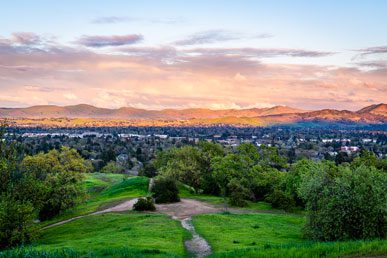The U.S. government has implemented a new system of tracking non-immigrant visa holders in the United States through a process known as Special Registration. This regulation has recently been expanded, and will likely change in the future. At the present time, the government has one system for individuals who enter the United States or the National Security Entry-Exit Registration System (NSEERS), and a separate Special Registration for visitors who are already present in the United States.
Selected individuals from designated countries will be fingerprinted and photographed by the Bureau of Citizenship and Immigration Services (formerly the Immigration and Naturalization Service) and will be required to appear in person at a local Bureau of Citizenship and Immigration Services (BCIS) office to report changes in address, employment, educational institution, or other criteria outlined by the BCIS. Special Registrants are required to notify a BCIS officer when they exit from the United States. At the time an individual appears for Special Registration, she or he will be provided with a list of ports to use when departing the United States. All Special Registrants MUST depart ONLY through one of these designated ports of departure.
At the present time citizens or nationals from 25 countries have been designated for Special Registration with deadlines for registration assigned to each country. The countries currently required to register include group number 1: Iran, Iraq, Libya, Sudan and Syria, which were required to register by February 7, 2003. Group number 2: Afghanistan, Algeria, Bahrain, Eritrea, Lebanon, Morocco, North Korea, Oman, Qatar, Somalia, Tunisia, United Arab Emirates and Yemen also were required to register by February 7, 2003.
Pakistan and Saudi Arabia comprised group number 3 and their registration period completed on March 21, 2003. Group number 4 is the most current group requiring a registration date by April 25, 2003 for aliens from Bangladesh, Egypt, Indonesia, Jordan and Kuwait.
Individuals who report to the BCIS for Special Registration must answer questions under oath before an immigration officer and the answers will be recorded. Evidence of legal status in the United States will be required such as a passport, I-94, I-20, DS-2019, IAP-66, H-1B approval notices. In addition to the proof of status a Special Registrant may be asked to provide all phone numbers, addresses, contact information and credit card numbers about their parents and other relatives living in the U.S. and abroad.
Even if you are from one of the designated countries, certain individuals are not required to register. This group includes females, U.S citizens, Lawful Permanent Residents of the U.S., A or G nonimmigrants, anyone who has applied for asylum before November 6, 2002 and anyone who already was granted asylum. Individuals who have entered the U.S. without inspection or were paroled need not register as the regulations call for only those who have been inspected and admitted into the country as nonimmigrants.
After registration, the INS is supposed to mark the registrant’s I-94 (Arrival-Departure Record) with a Fingerprint Identification Number or FIN to show that the person has registered. If the person does not have an I-94 he may apply for a replacement.
There have been many reports in the media regarding the treatment of registrants including the arrest of individuals even if an application was pending with the Immigration Service. Initially, this was the case and some individuals from the first groups were arrested as a result of being out of status regardless of whether they had a petition pending or not. Today, the Service has changed their position. If a registrant has a case pending with the Service he will be allowed to continue with that case without incident unless he has been convicted of a crime. The nature of that crime will determine whether or not an arrest will follow.
The Immigration Service has issued Notices To Appear in Immigration Court for many people who have criminal histories or have no application pending before the Service. Individuals who fall into this category may decide not to register though the risk of registration is countered by a greater risk of failure to register.
A willful failure to register may make the nonimmigrant deportable for failure to maintain nonimmigrant status. There is also the concern that failure to register may be used by the Immigration Service or an Immigration Judge as a negative discretionary factor for those who seek adjustment of status or other forms of relief in the future.
Special Registration is a very important and complex requirement for citizens or nationals from designated countries. Before appearing before the Immigration Service to register it is recommended that you seek advice from an experienced immigration lawyer.





